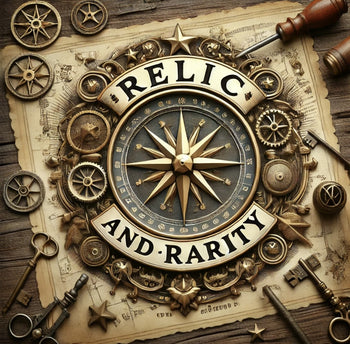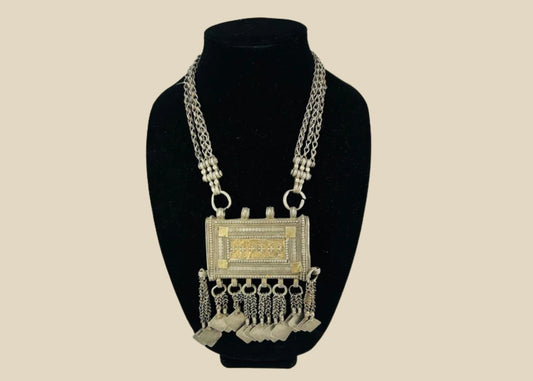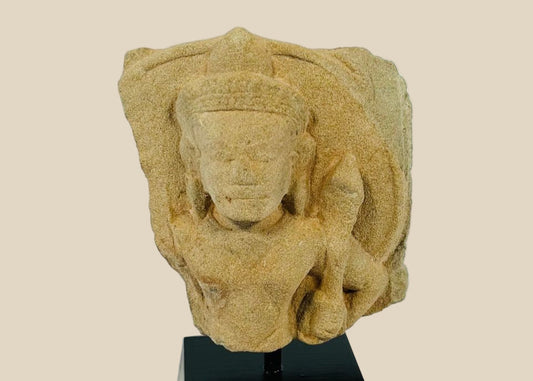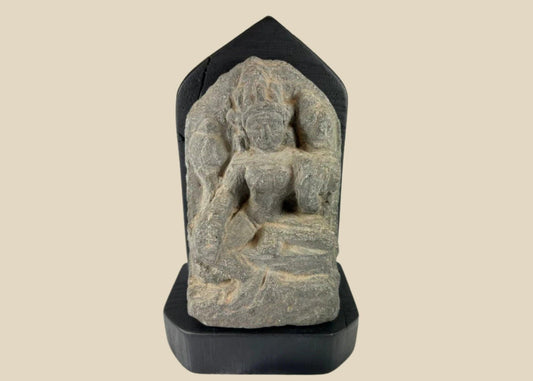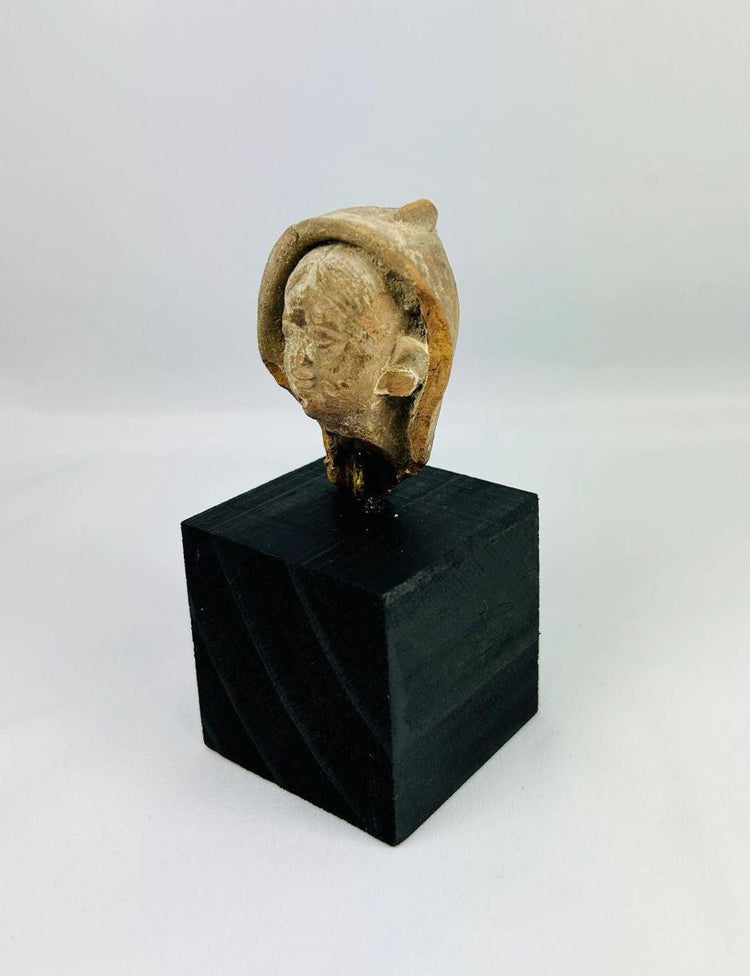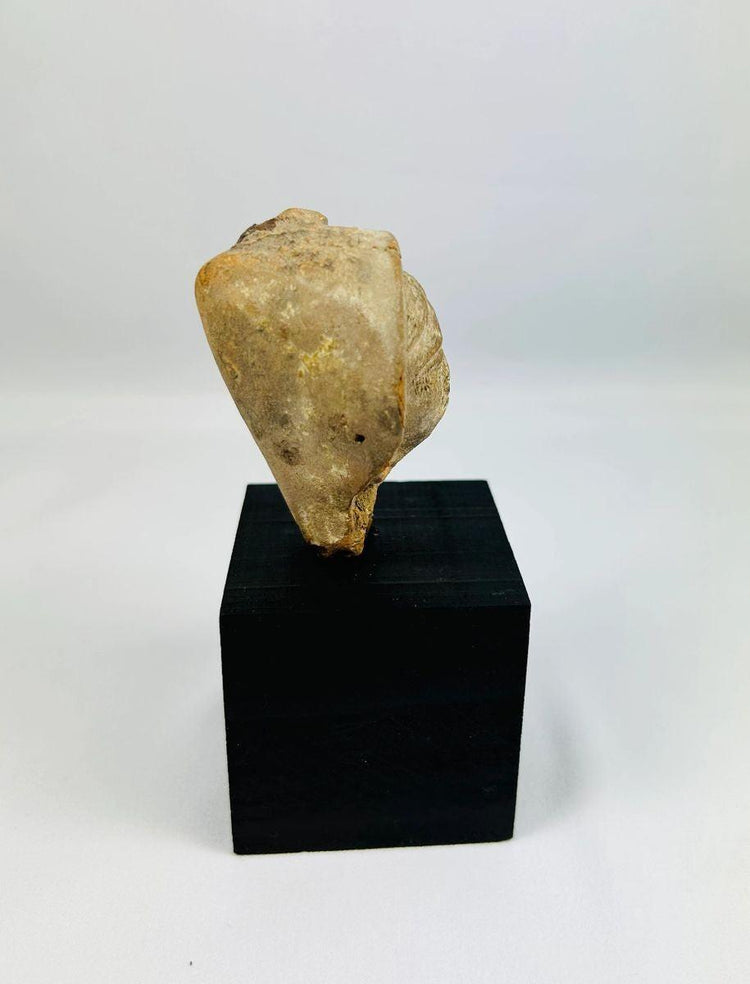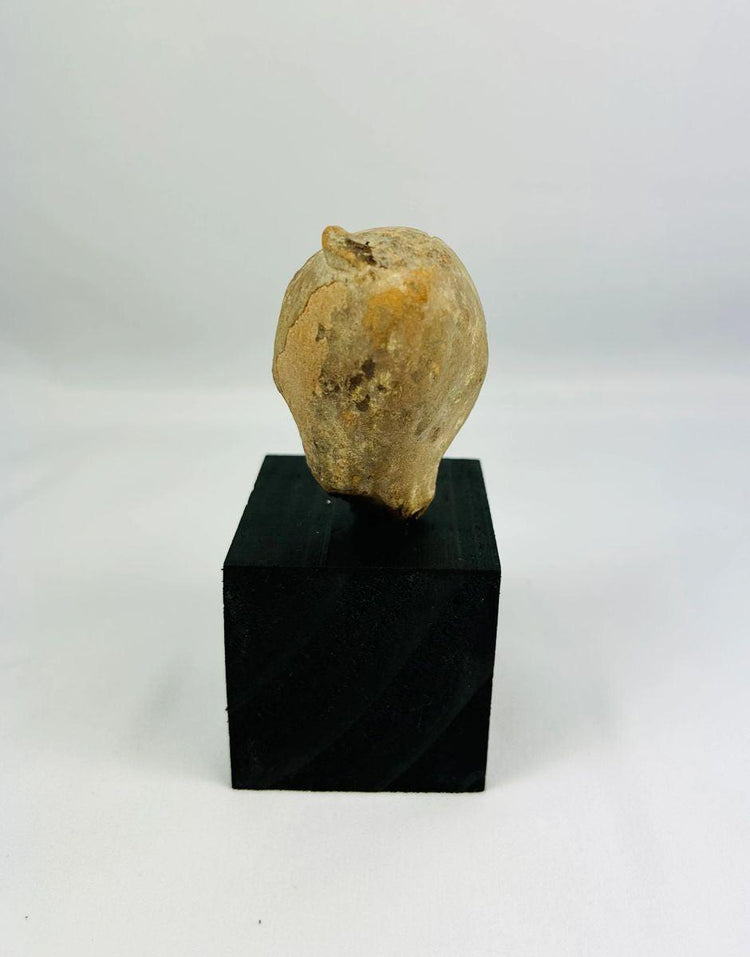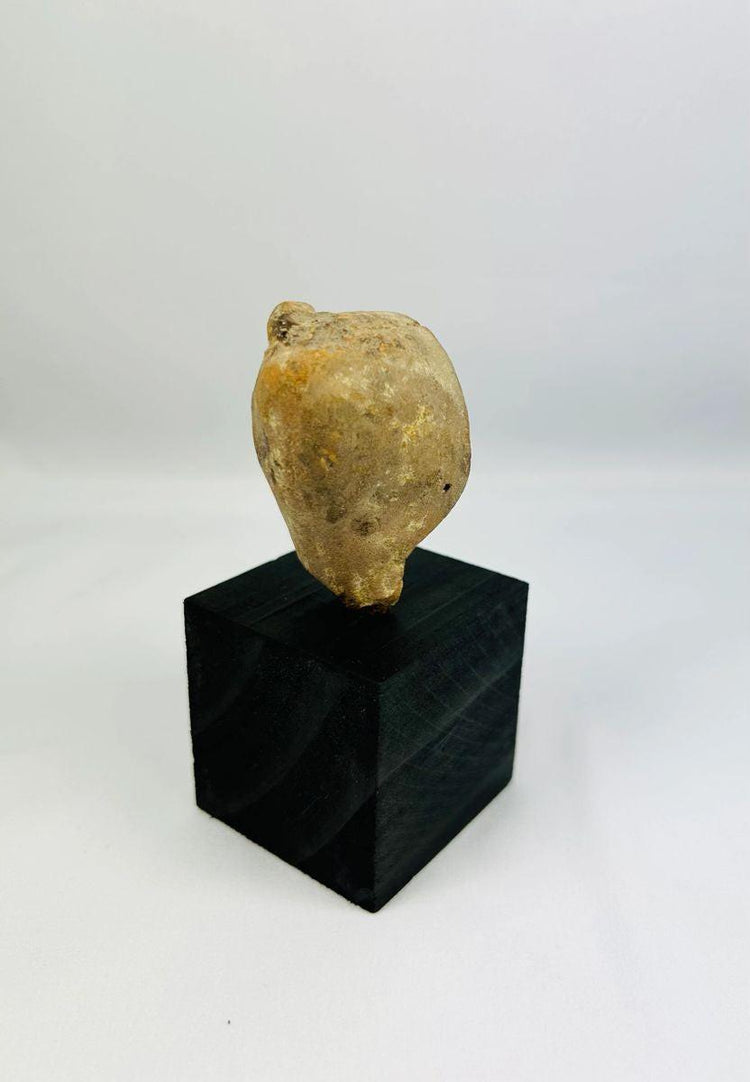Classical Mediterranean Terracotta Head | Greek or Roman Fragment with Headdress | Circa 1st Millennium BCE–1st Millennium CE
Description
More
Less
Historical Context & Origin
Region: Mediterranean (likely Greek or Roman)
Material: Terracotta
Period: Classical Antiquity, circa 1st Millennium BCE–1st Millennium CE
Description
This terracotta head fragment captures the serene expression and elegance of classical Mediterranean art. The softly sculpted features, framed by traces of a headdress or head covering, suggest cultural and symbolic significance, possibly representing a deity, noble figure, or participant in ritual practice. Despite its fragmentary condition, the face retains a sense of poise and serenity, reflecting the ideals of beauty and spirituality found in Greek and Roman art.
Features
- Stylized facial features with calm, serene expression
- Subtly sculpted headdress or head covering, partially preserved
- Weathered patina enhancing authenticity and age
- Mounted on a custom black stand for display
Cultural Significance
In the Greek and Roman worlds, sculpted figures often served both decorative and spiritual roles, adorning temples, homes, and public spaces. The emphasis on facial serenity symbolized balance, beauty, and divine order, while head coverings or headdresses frequently denoted status, ritual, or sacred identity. Fragments such as this remain powerful connections to the aesthetic and symbolic traditions of classical antiquity.
Condition
Excellent preservation for its age, with clearly visible features and a natural weathered patina. Mounted on a custom display stand to highlight its detail and ensure stability.
Dimensions (approximate)
Height: 5 in
Width: 3 in
Depth: 2 in
Age
Circa 1st Millennium BCE–1st Millennium CE
Description
Historical Context & Origin
Region: Mediterranean (likely Greek or Roman)
Material: Terracotta
Period: Classical Antiquity, circa 1st Millennium BCE–1st Millennium CE
Description
This terracotta head fragment captures the serene expression and elegance of classical Mediterranean art. The softly sculpted features, framed by traces of a headdress or head covering, suggest cultural and symbolic significance, possibly representing a deity, noble figure, or participant in ritual practice. Despite its fragmentary condition, the face retains a sense of poise and serenity, reflecting the ideals of beauty and spirituality found in Greek and Roman art.
Features
- Stylized facial features with calm, serene expression
- Subtly sculpted headdress or head covering, partially preserved
- Weathered patina enhancing authenticity and age
- Mounted on a custom black stand for display
Cultural Significance
In the Greek and Roman worlds, sculpted figures often served both decorative and spiritual roles, adorning temples, homes, and public spaces. The emphasis on facial serenity symbolized balance, beauty, and divine order, while head coverings or headdresses frequently denoted status, ritual, or sacred identity. Fragments such as this remain powerful connections to the aesthetic and symbolic traditions of classical antiquity.
Condition
Excellent preservation for its age, with clearly visible features and a natural weathered patina. Mounted on a custom display stand to highlight its detail and ensure stability.
Dimensions (approximate)
Height: 5 in
Width: 3 in
Depth: 2 in
Age
Circa 1st Millennium BCE–1st Millennium CE
You May Also Like
